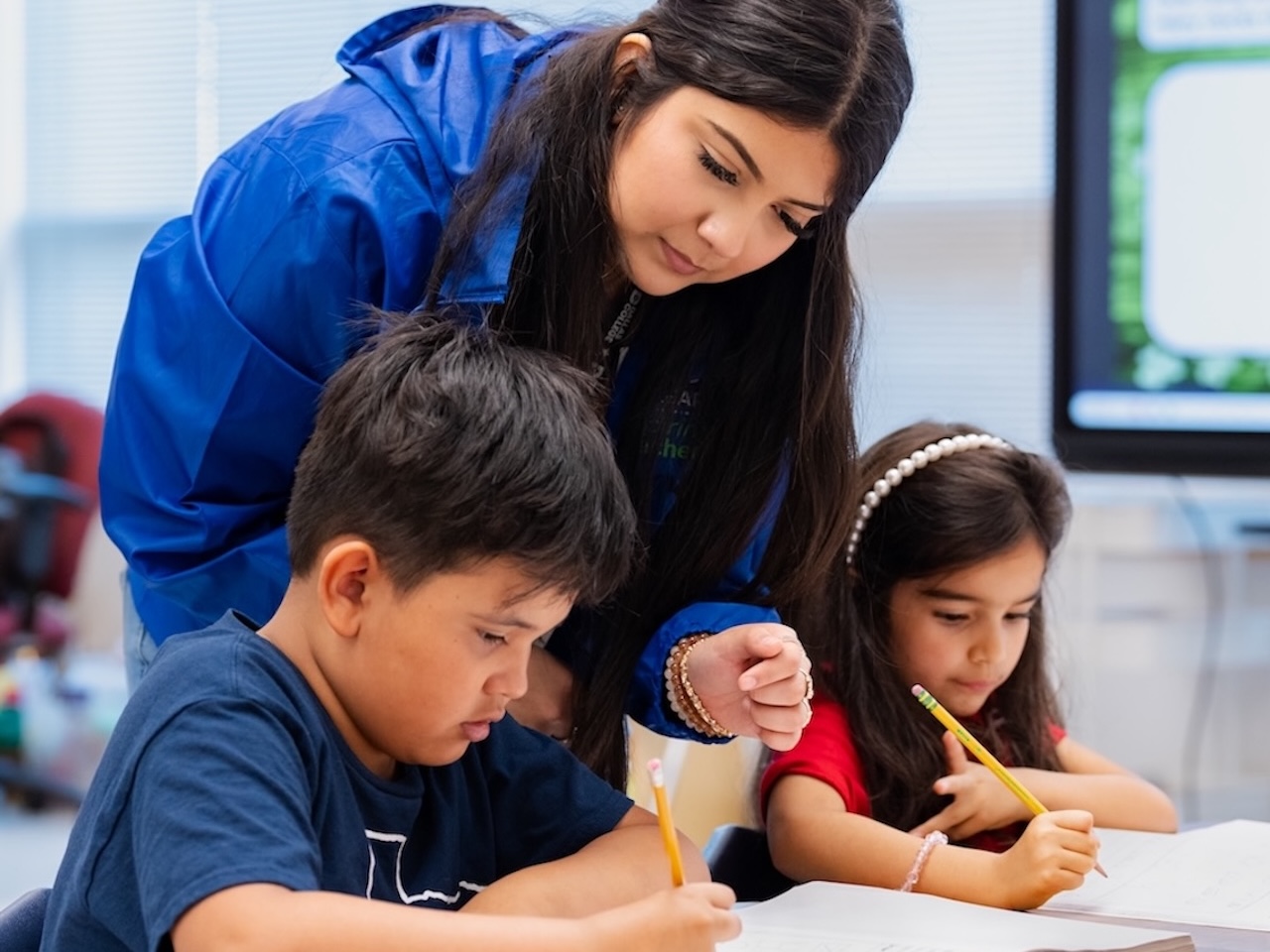House Bill 2: Prioritizing effective teachers and strong schools for improved student outcomes




Following Governor Greg Abbott’s declaration of teacher pay as an emergency item in this year’s State of the State address, and the introduction of Senate Bill 26 last month by Senate Education Committee Chair Brandon Creighton, Texas lawmakers have another opportunity to both increase teachers’ salaries to an all-time high and to increase the quality of instruction Texas students receive.
%20(1).png)
Expanding on the success of the Teacher Incentive Allotment
Like SB 26, House Bill 2, by House Public Education Chairman Brad Buckley, significantly expands the Teacher Incentive Allotment, or TIA. Under HB 2, the top 50% of teachers would be eligible for a designation that would significantly increase their salary, and the bonus amounts would be increased. HB 2 also creates an “Enhanced TIA” designation to reward schools that implement comprehensive school evaluation and support systems, signaling recognition of the critical role principals and assistant principals play in campus culture and effectiveness.
Earlier this month, Ben Mackey, Executive Director of the Texas Impact Network, told the House Committee on Public Education that “Teacher Incentive Allotment is a solution that is working for all of Texas, from large urban districts to small rural districts. In fact,” he noted, “more than half of the districts that are approved are smaller or rural districts that are putting this to use.”
And the program is having a tremendous impact on student achievement, according to Dallas ISD Early Childhood Educator Billie Lara. “This increased investment, in conjunction with the expansion of TIA, will allow more students access to vital high-quality lessons in literacy, math, [and] language which are pivotal in providing the building blocks students need as they progress through their educational journey,” she told the Committee.
Providing support systems to struggling schools
Currently, struggling Texas schools can apply for a “Resource Campus” designation and become eligible to receive additional funding if the campus is implementing evidence-based initiatives, including:
- An Accelerated Campus Excellence (or ACE) plan
- Staffing initiatives
- High-Quality Instructional Materials (or HQIM)
- Additional Days School Year (or ADSY)
- Teacher Incentive Allotment (TIA)
HB 2 updates those qualifications to make it more accessible for chronically underperforming campuses. As one example, by expanding eligibility for the Additional Days School Year to middle schools, as well as slightly lowering the amount of base calendar days needed to draw down additional funding, more campuses and school systems can not only add additional school days (a strategy proven by data to improve student outcomes) but earn the Resource Campus designation as a result.
Expanding eligibility for Resource Campus designations can help school system leaders more effectively intervene on struggling campuses and enable critical improvements before students fall further behind.
Investing In future educators
Every child deserves a well-trained teacher. Unfortunately, 56% of new teachers hired in the 2023-2024 school year were uncertified, a growing cohort that research has shown limits academic growth for Texas students by up to three to four months.
HB 2 establishes new teacher preparation, training and mentoring programs including the establishment of a Residency Preservice Partnership Program to help connect qualified teacher preparation programs with schools so teachers get the training and preparation they need to best serve their students. The bill also provides a strong incentive structure to teacher candidates choosing their preparation route, as it allows a more cost-effective path toward rigorous training.
Preparing Texas students for the 21st century workforce
A big part of public education involves preparing students for life after graduation — whether they plan to enroll in postsecondary education, immediately begin their search for a well-paying job, or enlist in the military. Providing individualized guidance helps today’s students become successful members of the Texas workforce of tomorrow.
As one example of the impact college and career advisors can have, in her recent testimony to the House Public Education Committee Uplift CEO Yasmin Bhatia touted the charter network’s 1:75 student-to-advisor ratio as a driving factor behind the school system’s above average rates of college enrollment and completion as well as its recent graduates’ earning potential, over $20,000 higher than the Dallas County average.
House Bill 2 establishes a high school advising program through which participating school districts and open-enrollment charter schools would provide college or career advising to students.
Each of these policies is good for teachers and students, and Texas voters agree. A recent statewide survey conducted by Ragnar Research Partners found that 87% of Texas voters support “expanding the Teacher Incentive Allotment” to “allow top-performing teachers to make more money” — especially if they “teach on hard-to-staff campuses.” And 94% support “high-quality college and career advising” as well as increasing funding for “tutoring and other programs to accelerate learning for students falling behind.”
Texas state leaders — and voters – know that our state’s future lies with our students. That’s why the state’s top teachers, like Dallas ISD Early Childhood Educator Billie Lara, say that with the investments in HB 2, student success stories can be replicated statewide.
By investing in high-quality teachers, ensuring schools and teachers have the resources they need to provide high-quality instruction, and providing students with individualized guidance about their educational journey both during and after their time in Texas schools, we can ensure that every Texas child graduates prepared for college or a good-paying career.






.png)